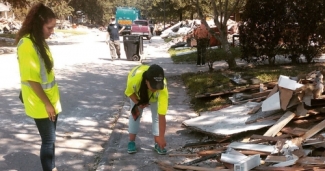After the Storm: National COSH's Perspective from their Train-the-Trainer Sessions in Houston
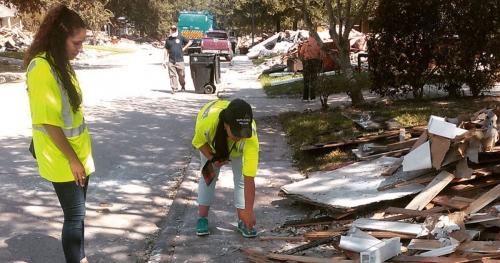
[Editor’s note: This guest blog comes from Jessica E. Martinez, MPH, Co-Executive Director for the National Council for Occupational Safety and Health (COSH), who sent this update out a few days ago. We are grateful for her permission to republish and for the important work that National COSH is doing in Houston. Learn more about post-disaster recovery and cleanup -- and the many associated health and safety risks -- at MCN's webinar, “After the Storm: Lessons Learned on Worker Health & Safety During Storm Disaster Cleanup.” Register at our Upcoming Webinars page.]
I’m writing you from Houston, on the third and final day of an intensive bilingual “train-the-trainers” session for workers who want to see their city rebuilt safely and securely. What I’ve witnessed here has been so powerful that I wanted to share my experience with you.
Here, I joined 25 day laborers, domestic workers, community health workers and others, all gathering essential information and tools that they will bring back to educate and empower hundreds of other workers.
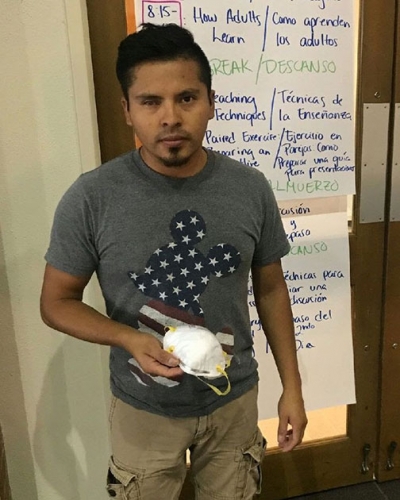
I met Leonardo, a recycling worker who lost his eye while cleaning a machine and lost his car during the flood.
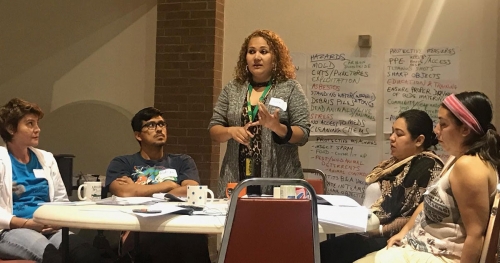
And Andie, a housekeeping worker and single mother of four, whose home was flooded and who has been unable to return to work.
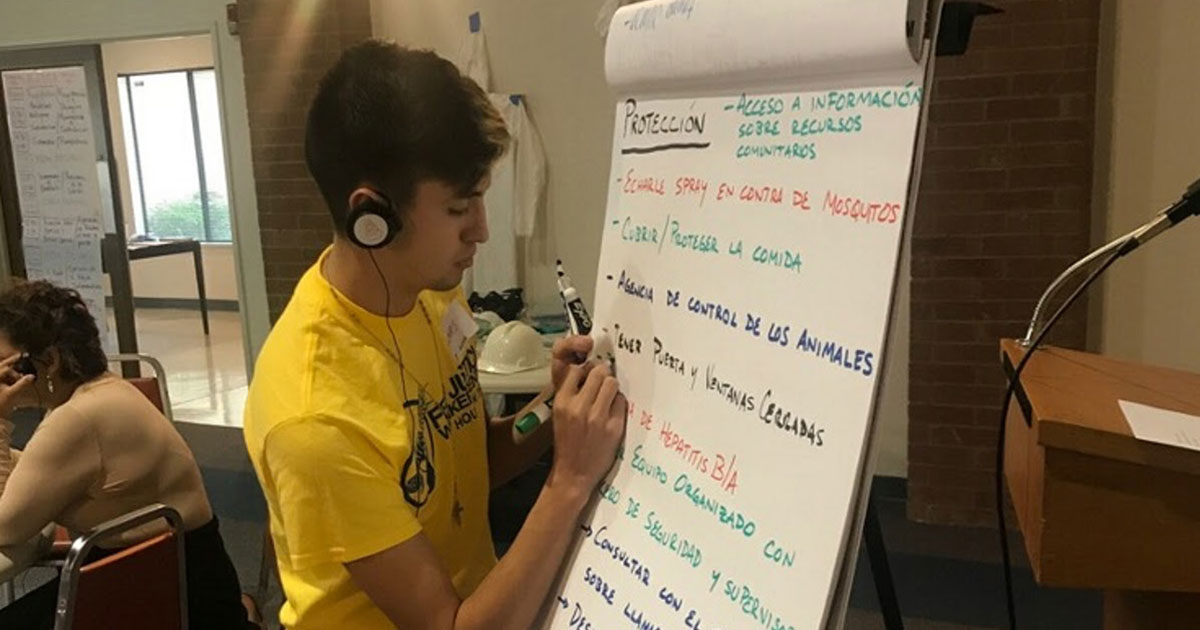
And Chris Saldivar, a young organizer, whose family lost their home in the hurricane.
Their dedication and perseverance in the face of enormous obstacles are truly inspiring. That’s why -- just 24 hours after Harvey struck -- I was on the phone with Marianela Acuña Arreaza, the new executive director of our Houston affiliate, Fe y Justicia Worker Center.
Marianela knew right away that she didn’t want to see a repeat of what happened after 9/11, Katrina, Sandy, and other disasters, when clean up workers became sick and were killed from hazards that could have been prevented. Houston will be rebuilt, but it must not be at the cost of pain, suffering, and even death of low-wage, predominantly immigrant workers.
I and my coworkers at National COSH reached out to our partners at the International Chemical Workers Union Council (ICWUC). We’d already worked with ICWUC to write a storm clean-up curriculum and develop “master trainers” to deliver it.
Putting this effort together in a very short time, I saw the power of the COSH Network in action. Within days, we had commitments from experienced bilingual trainers from MassCOSH, NENYCOSH, and the Chemical Workers to come to Houston.
I’ve had a chance to look at the damage here, as well as the cleanup and recovery that is already underway. As our team surveyed the streets, I learned that American-born families put their damaged belongings in front of their homes so that the damage could be assessed by federal emergency workers and then be disposed of.
Immigrants without documentation status, on the other hand, are afraid of having government agency workers come to their homes so they have put their belongs in the backyard to dry, with the intention of reusing them, which puts families in danger of illnesses from mold and leaky chemicals.
There are also many risks for those with job assignments during the recovery. Day laborers, construction workers, utility workers and domestic workers are going into flooded and damaged buildings. They will encounter mold, sewage, and air and water that may have been contaminated with toxic pollutants.
That’s why our “train-the-trainers” session is so important. We’re helping worker advocates learn the skills they need to teach others about their workplace rights, how to assess hazards, and how to reduce the risk of injury and illness. Equally important, we are building leadership and capacity among workers most impacted by unsafe conditions – low-wage immigrant workers who can reach and educate other highly vulnerable workers.
This week’s training session is just the beginning. We’ll continue supporting Marianela and her team as they go into the neighborhoods and communities that others often ignore. They’ll be reaching out to day laborers, immigrants, and others who are always the most at risk from unsafe working conditions.
We’re also reaching out to our affiliate in Miami, South Florida Interfaith Workers Justice, to see how we can assist in keeping workers safe during recovery efforts from Hurricane Irma.
In addition, we’ve partnered with NYCOSH to provide a series of fact sheets on safe cleanup procedures. The fact sheets describe known hazards experienced during previous recovery efforts, including asphyxiation, building collapse, electrocution, explosion, mold, sewage, toxic contaminants, and other conditions. The more we know about these hazards, the better chance we have to prevent them.
Thanks so much for all you do to support National COSH and our movement to empower workers and win safer workplaces. With your help, we’re making a real difference for workers in Houston.
- Access National COSH’s list of resources: “How you can help: #SafeCleanUp from Hurricane Harvey.”
- Join MCN for our national webinar, “After the Storm: Lessons Learned on Worker Health & Safety During Storm Disaster Cleanup,” presented next Friday.
- Contact Jessica Martinez at jem.coshnet@gmail.com.
Like what you see? Amplify our collective voice with a contribution.
Got some good news to share? Send it to us via email, on Facebook, or on Twitter.
Return to the main blog page or sign up for blog updates here.
- Log in to post comments
